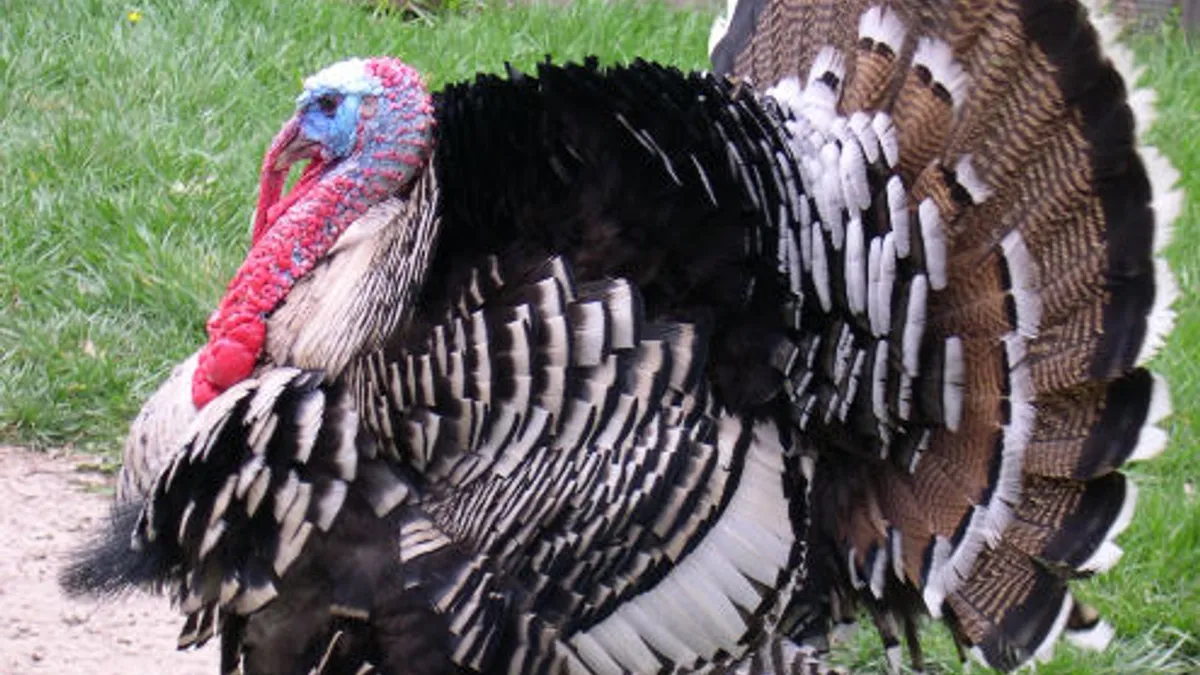Turkey is an unusual product in the American food system.
It could be like chicken or beef, i.e. a staple item with a large and varied group of suppliers processing product throughout the year. But it's no such thing. Rather, turkey production and sales all revolve around the holiday season. Like tax prep services or ski resorts, turkey is a seasonal business with a very short window in which to make a profit.
Each year there are a number of factors that help determine the success of poultry growers, retailers, and others in the turkey supply chain. And each holiday season is a bit different from the last in the turkey business.
Here are the five things you need to know about this year's market:
Turkey is more expensive
The price of birds this year is running 8 cents to 10 cents higher per pound than last year. The reason, according to Corinne Alexander, an agricultural economist at Purdue University, is higher feed prices following the drought in 2012.
Turkey is more plentiful
Usually when the price of turkey is high, it's because the supply is low - but that's not the case this year. There are no indications that the turkey shortage of 2013, which was driven largely by a production error at Butterball which accounts for roughly 20% of U.S. output, is being repeated in 2014.
Turkey has fewer chemicals
The biggest news in the turkey business this year is that Cargill began selling whole turkeys and turkey breasts under its Shady Brook Farms and Honeysuckle White brands that are free of growth-promoting antibiotics. The birds, which Cargill is pricing as higher than conventional but lower than organic, aren't the first such turkeys on the market. But they are the first ones sold by one of the leading producers.
Turkey is more controversial
The activist group People for the Ethical Treatment of Animals (PETA) has called upon the Federal Trade Commission to force Butterball to yank labels claiming their turkeys are "humanely raised." There's no telling yet if the FTC will investigate PETA's claims that the labels are deceptive and misleading, nor is there any reason to assume the controversy will have much of an effect on sales. But it's worth noting that Perdue decided to remove its "humanely raised" labels on chicken following similar complaints.
Turkey is more like it used to be
One interesting trend we've noted is that heritage turkeys, those birds that have maintained a good portion of the genetics of their wild ancestors, are getting considerably more attention this year than previously. Heritage turkeys are still quite rare, and are pricier than other birds, but foodies are interested in anything, including an old-fashioned bird that can be deemed "authentic." There are simply not enough of the birds to have much of a dollar impact on the market - yet. But things change quickly in the turkey world. After all, a few years ago, there wasn't a soul on earth who would think about deep- frying turkey.








